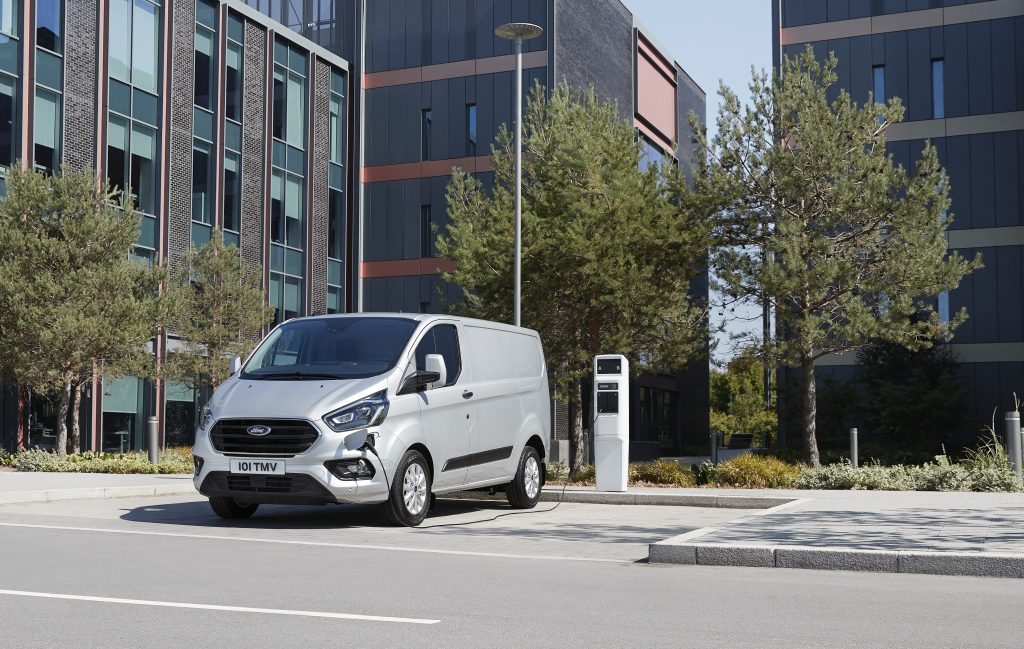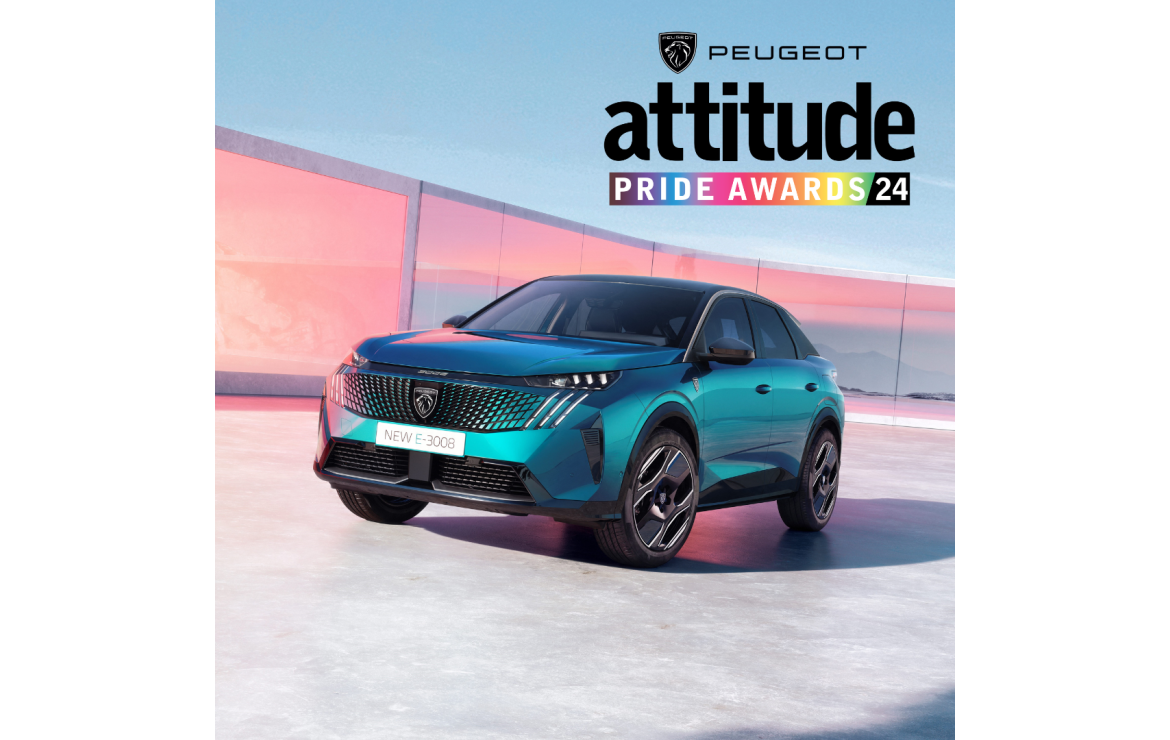- Ford reveals production version of new Transit Custom plug-in hybrid electric vehicle (PHEV) for the first time, at IAA Commercial Vehicle show in Hannover, Germany
- Advanced PHEV powertrain targets 50 km (31 mile) zero-emissions range, or 500 km (310 mile) total range using award-winning 1.0-litre EcoBoost engine as a range extender
- First PHEV in segment delivers high productivity with no range anxiety; retains load volume and 1-tonne payload capability of diesel-powered van
- Enhanced Transit Custom range announced with upgraded 2.0-litre EcoBlue diesel with more powerful 185 PS variant, and segment-first mild hybrid powertrain option
- Hannover CV Show also marks debut for dynamic new Transit Connect Sport Van with exterior styling kit, signature bonnet stripes and Dark Stainless alloy wheels
Ford’s Transit Custom strengthens its position as Europe’s leading one-tonne van with the public debut of the new plug-in hybrid (PHEV) model, shown for the first time in production form at the IAA Commercial Vehicle show in Hannover, Germany.
The Transit Custom PHEV features an advanced hybrid powertrain system that targets a zero-emission driving range of 50 kilometres (31 miles), and uses the multi-award-winning Ford 1.0-litre EcoBoost petrol engine as a range extender for total range exceeding 500 kilometres (310 miles). *
Ford is the first volume manufacturer to offer PHEV technology in this segment of the van market. The technology enables the vehicle to be charged with mains electricity for zero-emission journeys, contributing to reduced local emissions and allowing the vehicle to enter low-emissions zones. The PHEV model will enter volume production in the second half of 2019.
“The Transit Custom PHEV re-writes the rule book for a general purpose 1-tonne van, providing a versatile performer with zero-emission capability,” said Ian Porter, chief programme engineer, Transit Custom, Ford of Europe. “Transit Custom PHEV demands no compromises, offering the same load capacity as a diesel van, and the freedom to complete long-distance journeys without the need to stop for a charge.”
Ford also announced major enhancements to the Transit Custom line-up, including an upgraded 2.0-litre EcoBlue diesel with more powerful 185 PS variant, a segment-first diesel mild hybrid powertrain option, and advanced new connectivity and driver assistance features.
Zero emissions. Zero range anxiety
The Transit Custom PHEV provides operators with outstanding fuel and energy efficiency, and outstanding flexibility. The advanced hybrid-electric powertrain system is perfectly suited to scenarios from multi-stop delivery schedules to longer commutes between construction sites.
The vehicle uses a series-hybrid driveline configuration, the front wheels being driven exclusively by an electric motor, rather than by the combustion engine. Power for the motor is provided by a compact 14 kWh liquid-cooled lithium-ion battery pack located under the load floor, which has been carefully positioned to preserve the full cargo volume offered by the standard Transit Custom van, and a payload exceeding 1,000 kg. Ford’s compact and fuel-efficient 1.0-litre EcoBoost engine generates additional charge for the batteries when required.
Three selectable EV modes enable the driver to choose how and when to use the available battery charge:
- EV Auto – default setting determines how to use the energy sources
- EV Now – uses only electric power until the battery is depleted
- EV Later – system aims to maintain current level of battery charge
Using the charge port located within the front bumper, the Transit Custom PHEV can be charged using a domestic 240 volt 10 amp power supply, achieving full charge in five hours, or a commercial 240 volt 16 amp or 32 amp supply, which can bring the pack to full charge in three hours.
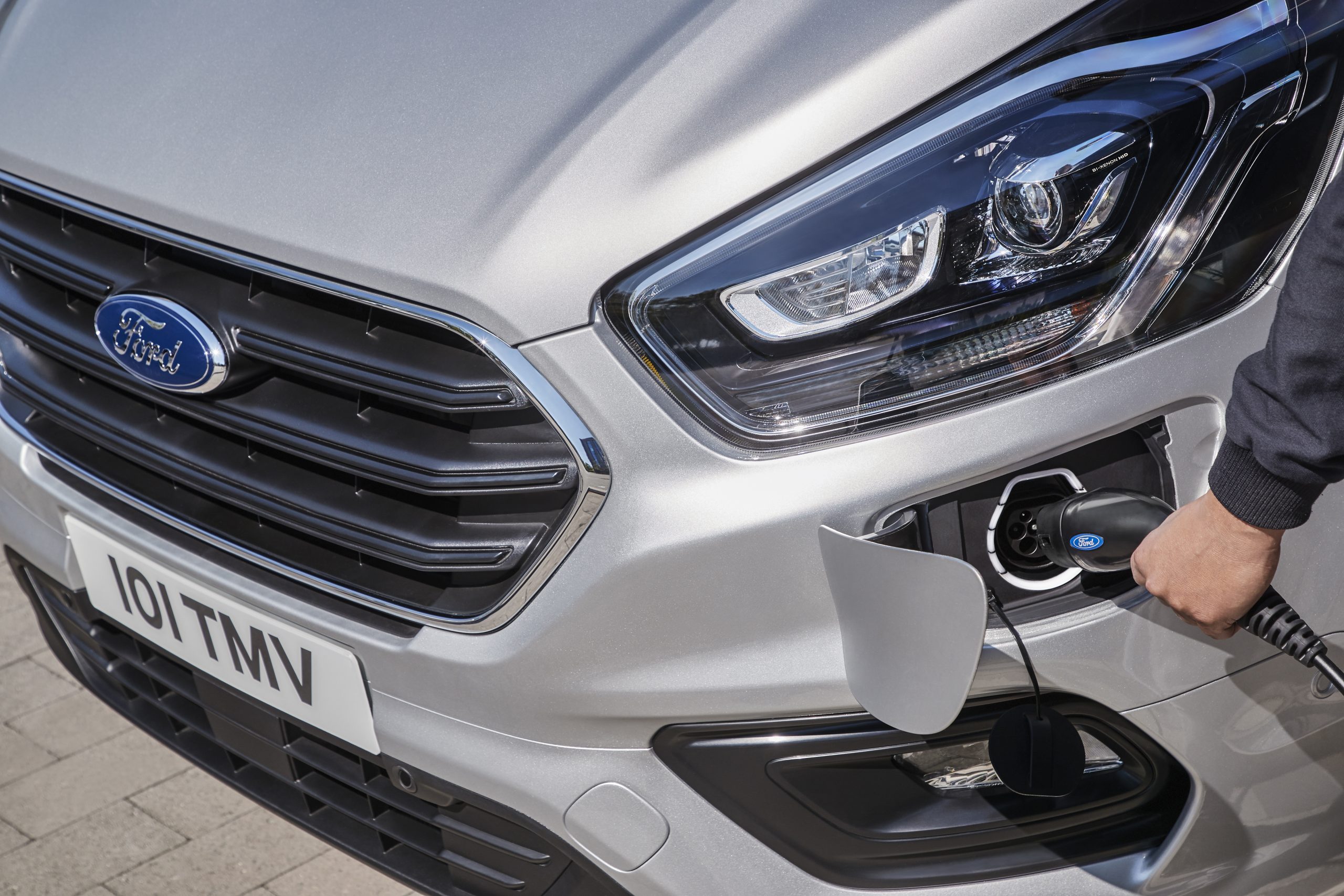
The FordPass Connect on-board modem technology is a standard feature, allowing fleet operators to improve vehicle utilisation and optimise running costs, and enabling a range of features to be accessed via the FordPass mobile app to make the vehicle ownership and operating experience easier and more productive.
Within the cabin, a power/charge gauge replaces the standard rev counter, and a smaller gauge for battery state of charge replaces the engine coolant temperature indicator. Trip computer functions are configured specifically for the PHEV powertrain, and EV mode indicators, maintenance alerts, and a warning when the vehicle is plugged into a charging point, appear on the instrument display cluster. A status line showing distance to empty for both the battery and range extender is visible on all screen displays.
The spacious and practical new Transit Custom interior provides class-leading stowage and all-new displays and control panels designed for enhanced ergonomics and ease of use. Ford’s voice-activated SYNC 3 communications and entertainment system is available for high-series models, featuring an 8-inch colour touchscreen that can be controlled with pinch and swipe gestures.
The Transit Custom PHEV will be offered in a range of high-specification series, and offering driver assistance technologies including Active Park Assist and Lane-Keeping Aid supported by standard electric power-assisted steering that is optimised for city driving and easy manoeuvring in busy commercial environments.
Tested in the real world
Ford Transit Custom PHEV prototypes are undergoing a 12-month fleet trial with real-world customers in London, covering in excess of 50,000 km (31,000 miles) to date, and Ford recently announced further trials will begin in Valencia, Spain. The vans – equipped with telematics systems – gather data on operational and environmental performance, including charging patterns, journey patterns and real electric-only range, while in use by commercial fleets including delivery and construction companies, utilities and services such as the police.
The data collected is helping Ford to better understand how to optimise the benefits of the hybrid powertrain and explore how lower-emission plug-in hybrid electric vans could support cleaner air targets, while boosting productivity for operators in urban conditions.
The new Transit Custom PHEV van is a key component of Ford’s global electrification commitment, with an investment of $11 billion to create a portfolio of 40 electrified vehicles globally, including 16 fully electric vehicles through 2022.
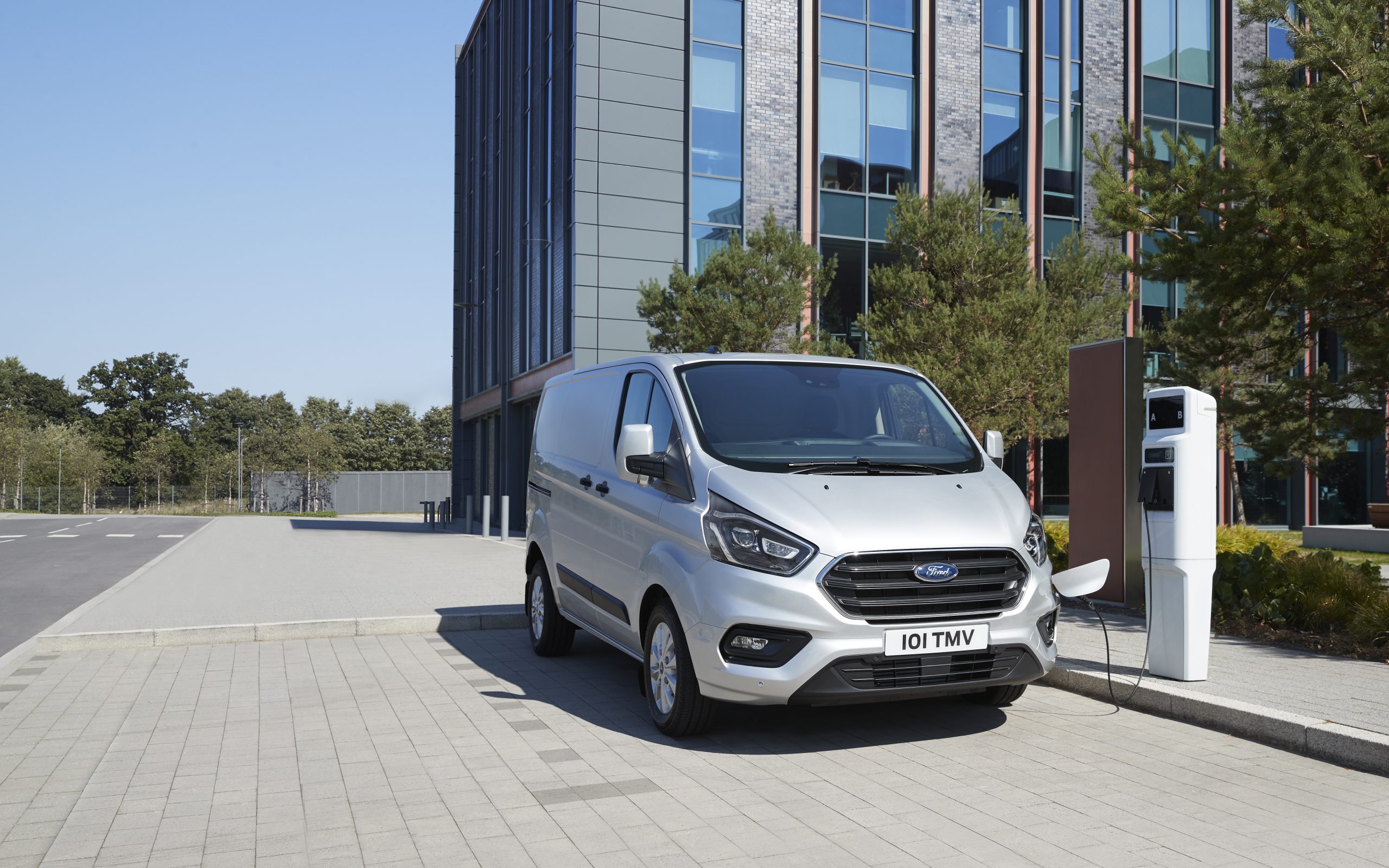
Transit Custom powertrain and connectivity upgrades
From mid-2019 the Transit Custom range benefits from a series of significant upgrades that are shared with the new 2-tonne Transit model that makes its debut in Hannover.
Designed to enhance performance and cost of ownership, the changes include an upgraded version of Ford’s 2.0 EcoBlue diesel engine, further optimised for fuel efficiency and now available as a more powerful 185 PS variant. Transit Custom also offers a segment-first mild hybrid (mHEV) diesel powertrain option that delivers additional fuel efficiency improvements, with particular benefits in urban stop-start conditions.
The FordPass Connect on-board modem technology is introduced, and the Transit Custom can also be specified with an enhanced suite of advanced driver assistance technologies including Active Park Assist, Intelligent Adaptive Cruise Control, Lane Keeping Aid and Blind Spot Information System with Trailer Tow.
Sporty new flagship for Transit Connect
The stylish new Transit Connect Sport is also revealed for the first time at Hannover, packing a visual punch with an exterior styling kit, signature matt black sports stripes with silver or orange accents, and 16-inch Dark Stainless alloy wheels. The exclusive Transit Connect Sport van expands the line-up of Ford’s popular Sport vans, joining the Fiesta Van, Transit Courier and Transit Custom Sport models.
The generous standard specification includes a cabin enhanced with partial leather trim, a Ford Power starter button, Dual-Zone Electronic Automatic Temperature Control, Cruise Control with Automatic Speed Limiter, and static cornering fog lights.
The new Transit Connect range went on sale earlier in 2018 with upgraded fuel efficient petrol and diesel engines and an available advanced eight-speed automatic transmission.
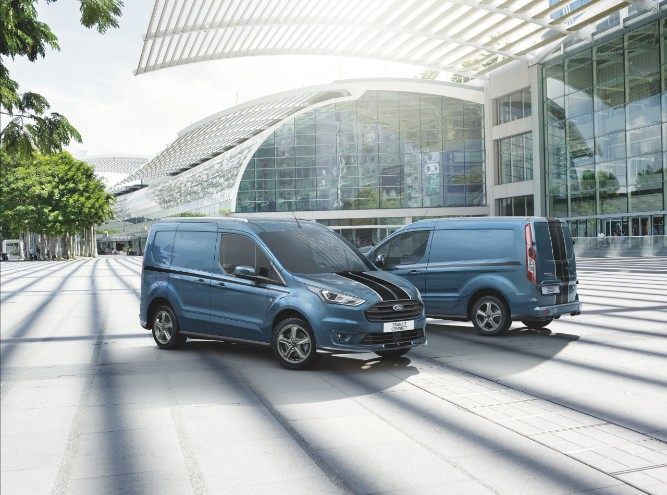
*Officially homologated fuel-efficiency and CO2 emissions figures will be published closer to on-sale date.


